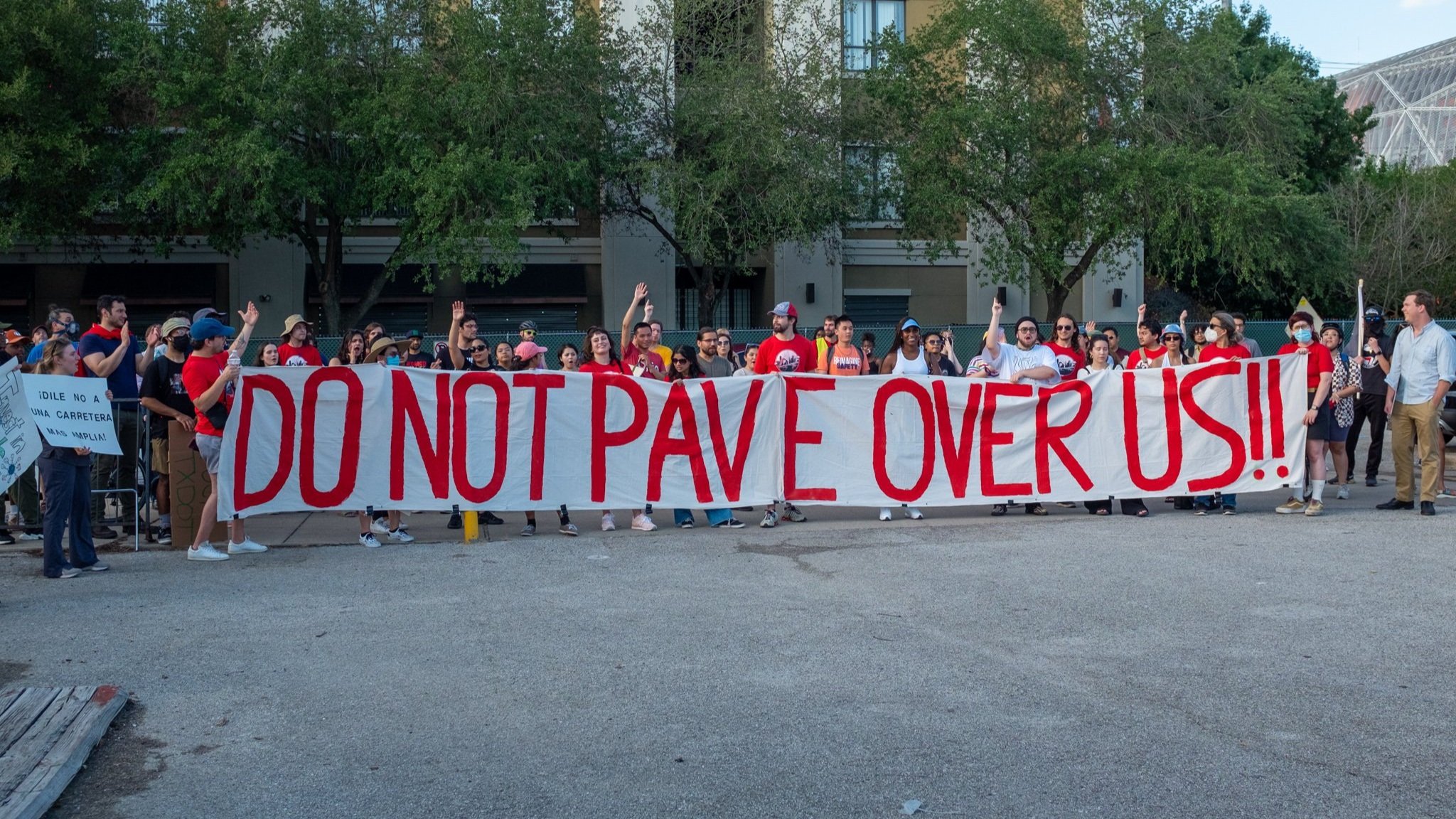A recent survey highlighted the challenges — and successes — that advocates encounter when they mount legal battles against transportation agencies over harmful highway expansions and uncovered insights other freeway fighters might use to pursue similar suits.
As part of a new analysis by the nonprofit America Walks, members of the grassroots Freeway Fighters Network recently shared their thoughts on what it takes to sue a state DOT and stories from their own legal battles through the years.
And “years” is not an understatement. Despite decades of research that proves highway expansions don’t cure congestion but rather worsen emissions and negative health outcomes for residents, many respondents said that suing to stop them is a lengthy and daunting process—and that other advocates should brace for a long haul and be persistent in their efforts.
"The legal route for fighting freeways is key to slowing down harmful projects and building public awareness," said Ben Crowther, policy director at America Walks. "It's a critical tool in the kit. This survey shows that the efforts are made by community members pooling their resources to fund legal action. So many of these fights have demonstrated success, even with limited financial means."
Those successes, though, weren’t always easily won.
In addition to developing detailed legal briefs and conducting thorough environmental studies to strengthen their cases, many survey respondents struggled to secure enough funding just to pay their lawyers. Nearly all stressed the importance of securing funding from diverse sources, including a mix of individual contributions, support from organizations, private donations, and public fundraising efforts.
Grants from foundations focused on environmental protection and social justice, as well as pro bono legal work from local lawyers and firms, proved crucial, too.
"We raised money using crowdfunding and small recurring donations,” one advocate noted. “Also, the law firm put us on a deferred payment schedule, so we are still making monthly payments."
Many grassroots organizers also noted the challenges of navigating the legal system and said it was important to find the right community partners and legal expertise in ideologically aligned law firms, nonprofits, environmental organizations, and academic institutions.
Even with those partners, though, some advocates struggled to find clear legal precedents for their suits and navigate complex jurisdictional questions and judicial conflicts of interest. Others had to get creative to find a legal angle they could win; one Oklahoma advocate, for instance, mounted multiple lawsuits against the state Turnpike Authority, challenging their statutory authority and accusing the agency of violating the Open Meetings Act.
Even if those suits didn’t always defeat the freeway expansion, some still resulted in community benefits, like more funding for public transit and other mitigation measures.
Challenging a highway project is undeniably tough, but the stories from the Freeway Fighters Network show that even partial victories are worthwhile. While not all fights win, together, we can build strong grassroots coalitions and pave the way for a future where sustainable transportation and community well-being are prioritized over freeway expansions.
“Imagine if [freeway fighters] had access to greater resources,” Crowther added. “How many communities would be spared the threat of losing homes and businesses? How much cleaner would the air be without all the vehicle exhaust and emissions?"






